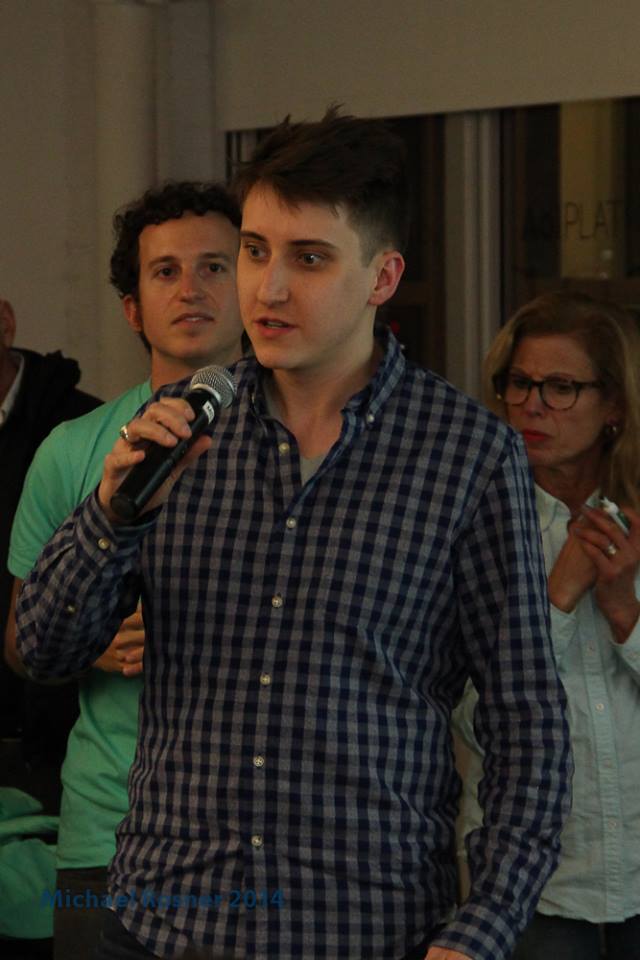Chase Gilliam isn’t from Baltimore originally, but he said it feels like home in a lot of ways.
In one sense, that’s because he’ll still be around. Even though he moved to Brooklyn, Gilliam is maintaining his role as director of engineering at health IT startup Avhana Health. But he also has an affinity for the place.
“I’m leaving,” he said, “but I’ll still have a foot in the waters here.”
On a personal level, the impetus for leaving is his partner Caroline Peri starting grad school at NYU, and Gilliam said he is ready for a new adventure in his own right after more than six years here. The move also gives the company a presence in New York, which has lots of health IT activity.
Before he left in August, we talked with Gilliam on the couches at Spark Baltimore to discuss the move and the last half-dozen years here. His own history is intertwined with the tech community. Tech was more of a hobby at first, but he got connected at events like Betascape, and eventually gravitated toward writing code. He met Avhana Health cofounder Nate Weiner at a transit hackathon.
Having helped organize the Baltimore Hackathon and teaching a Bmore on Rails’ Workshop for Women, it’s clear he values being involved in that community. The growth of both events indicates the community’s efforts to welcoming a diverse array of people.
When asked about his own departure from leadership roles, he sees a place for others to step up. The fact that events don’t rely on individual personalities to keep going is a sign of sustainability, he said.
“You want to give younger people in the community an opportunity to grow into those roles,” he said.
As part of our usual line of questioning in our ongoing Exit Interview series, we asked Gilliam what Baltimore could’ve done to keep him here.
He turned it on its head: What would make him come back?
He talked about systemic changes that would extend opportunity to a larger share of the population, and getting people more engaged politically. But he also pointed to what he’s seen change in a half-dozen years of living here. In the central core of the city, where his company is based, there’s new restaurants and cultural amenities. He said the city should double down on the work of groups like Digital Harbor Foundation and Code in the Schools in engaging kids.
“If the city stays on track, I’m much more likely to be want to be here again in the future,” he said.







